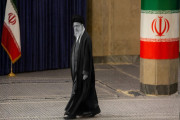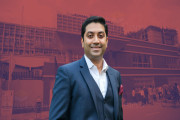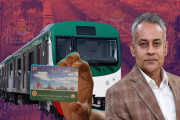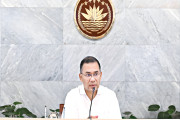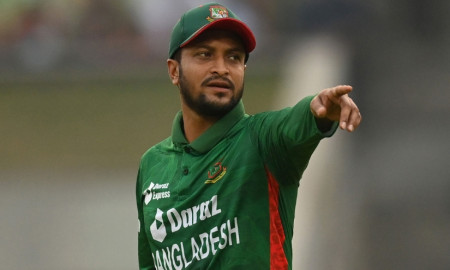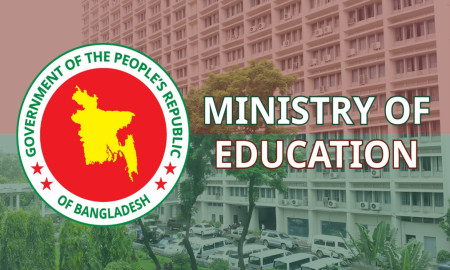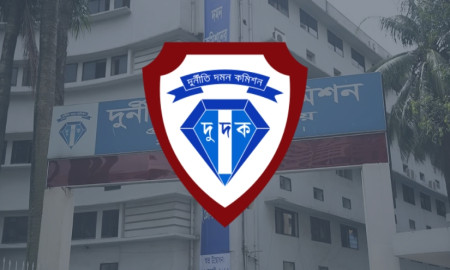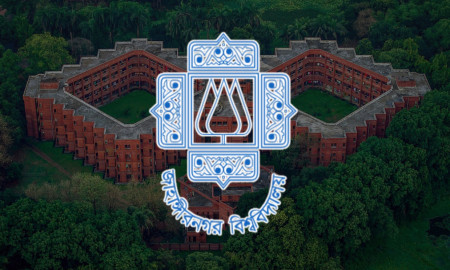Bobby Hajjaj Claims First Push for PR System in Bangladesh Politics
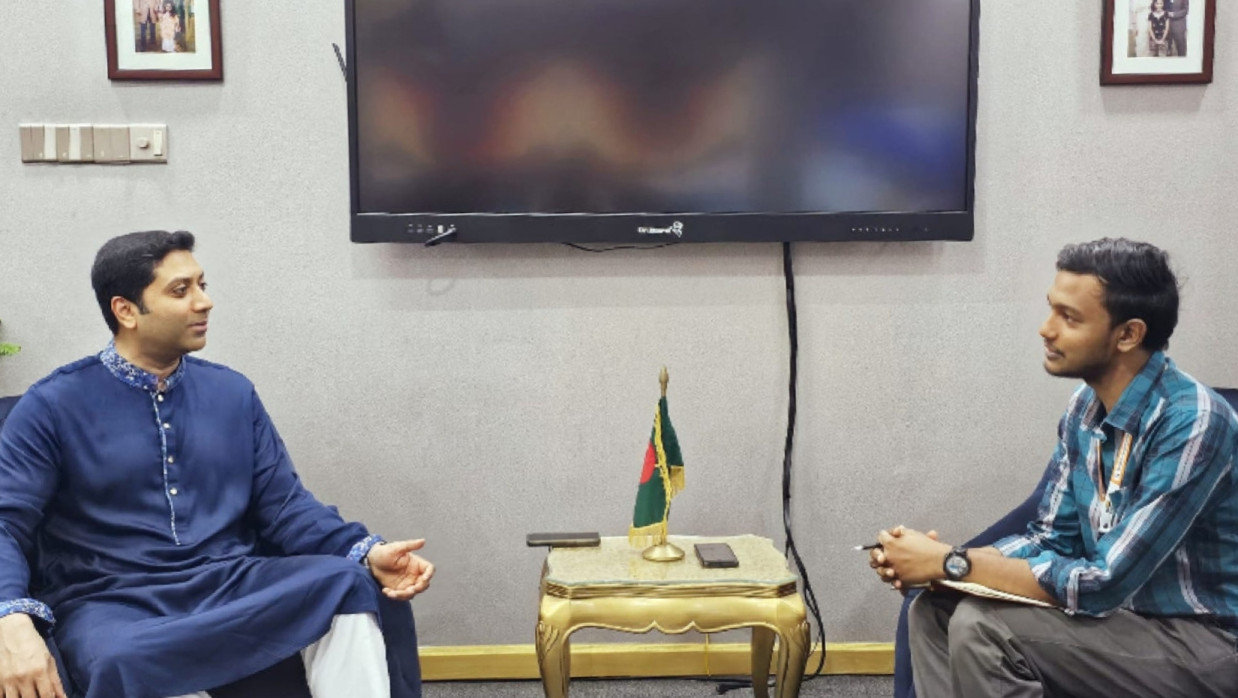
Bobby Hajjaj, chairman of the Nationalist Democratic Movement (NDM), is a distinct voice in Bangladesh’s politics. He has always been vocal about contemporary politics, elections, reforms, and the role of youth. After the historic mass uprising of July 2024, his political activism and vision have gained new dimensions. He is not only a skilled politician but also a thoughtful, youth-friendly, and courageous leader. His ideas about change, accountability, and electoral systems in the new Bangladesh will remain an inspiration for the younger generation. He spoke openly about the country’s political trajectory, the interim government, the education system, and youth leadership. The interview was conducted on behalf of The Daily Campus by Syed Zul Arshil.
- NDM’s journey has reached eight years. How much of the initial expectations have been realized?
- We can’t say all our expectations have been fully realized; it’s a time-intensive process. However, post-July uprising, we believe we’ve made significant progress. NDM was founded on the belief in establishing accountable democracy across Bangladesh. Until July 2024, we were trapped in an autocracy with no democracy or accountability. Through collective efforts, we achieved this mass uprising, a massive step forward. While we haven’t fully reached our goals, we’ve come a long way.
- It’s been a year since the July uprising. How much of the expectation to see a new Bangladesh has been fulfilled?
- The uprising involved immense sacrifice and struggle, so naturally, expectations are high, some even unrealistic. We’ve all had such expectations. We’ve faced disappointments in some areas, but realistically, significant national achievements have been made. Not all aspirations have been met, but the key is how committed we are to this journey. That commitment ensures we’ll achieve our goals eventually.
- As a professor at a prestigious private university for 16 years, you’ve seen private university students bring new momentum to the July uprising when Dhaka University was blockaded. Yet, post-August 5, they returned to classes while public university students gained privileges. How do you view this disparity as an educator?
- Several factors are at play. On July 17-20, private university students, alongside school, college, and madrasa students, spontaneously joined the movement. Without their participation, the uprising would have ended on July 17. I was with them on those dates, unlike earlier when we weren’t with students on the streets. Their involvement on July 18-20 reshaped Bangladesh’s politics. Private university students, often from elite families, shifted the movement’s trajectory when attacked, turning their families against the government overnight. These elite families, with the financial capacity to afford private education, made it impossible for the government to hold power, leading to its collapse within weeks. Private university students played the biggest role in toppling the autocracy.
Post-August 5, they returned to their campuses, which is their responsibility. Governance isn’t their role. However, we see significant mistakes in the interim government’s formation, particularly in involving young advisors. For instance, one advisor was caught with an illegal firearm at the airport, which is completely unlawful. Another endorsed mob violence, claiming it’s good. I don’t blame the youth; I blame those who placed them in governance roles. Public universities have been overly rewarded, while private university students faced some disrespect, which I’ve seen with regret. Yet, I believe the future lies in their hands.
- Can private university students, who were key to the July uprising’s success, participate in the national parliament in the future?
- You’re oversimplifying it. Private universities, starting in 1992, have a 25-year history with initially limited graduates. Parliament requires political experience, grassroots knowledge, and public trust, which take time and maturity. The last participatory election was in 2008-2009, and back then, private university graduates were few, so their parliamentary presence is naturally low. Additionally, the high financial investment in their education pushes families toward safer careers like corporate, IT, or academia, not risky politics. Political parties also focus on public universities for recruitment due to less familial pressure. However, today’s tech-savvy, leadership-driven private university students will increasingly shape politics and parliament in the future.
- There’s much discussion about the PR system, with parties like NCP, Jamaat-e-Islami, Gono Odhikar Parishad, and Charmonai echoing similar views. As NDM chairman, what’s your message?
- Our message is clear: as we embark on a new democratic journey, some parties shouldn’t undermine it for self-interest. NDM was the first to officially demand a PR system, but for a bicameral parliament—one chamber with PR, the other with FPTP—to ensure balance. Parties pushing full PR aren’t driven by democracy but by failed seat-sharing talks with BNP, an open secret. Full PR removes individual accountability, fostering party-centric politics. In Bangladesh, where no party has won over 40% votes in recent elections, a full PR system would prevent government formation, threatening democracy. These parties know this but use PR as a negotiation tactic, which is harmful. After our 10-15 years of struggle, undermining this democratic chapter is deeply regrettable.
- You’ve been inspiring youth at BNP seminars. Beyond politics, how do you evaluate BNP’s acting chairman Tareq Rahman as a person and patriot?
- My relationship with Tareq Rahman over the past few years has been purely political, rooted in our joint anti-autocracy movement, later called the one-point movement. We discuss building a new Bangladesh, so our connection is political. However, having had many discussions with him, I’d say he’s a gentleman, open-minded, and genuinely wants to contribute to Bangladesh. His willingness to listen and learn from others is a noble leadership quality.
- We know Bangladesh’s education system is declining. Where did it go wrong, and what’s the solution?
- The problems are many, but I’ll focus on solutions. Our education system is in poor shape. Fixing it requires a comprehensive overhaul, not just one or two changes, tailored to local needs. The previous government tried a Scandinavian model, ignoring our reality. That approach never works. We must redesign primary to higher education based on Bangladesh’s local context.
- How do you evaluate the interim government’s performance over the past year?
- Grading is tough. Our expectations were sky-high, sometimes unrealistically so. They could have done better. I’ve already mentioned the youth advisor issues, like the NCP being praised by the government despite problematic actions. There are also efforts within the government, not just advisors, to delay elections. Economic progress and law enforcement remain unaddressed. Some failures aren’t their fault, but others are avoidable. All governments have weaknesses, some forgivable, but delaying elections will worsen issues, and we won’t view that leniently. So far, they’ve managed decently, but without swift elections, their rating will decline sharply.

